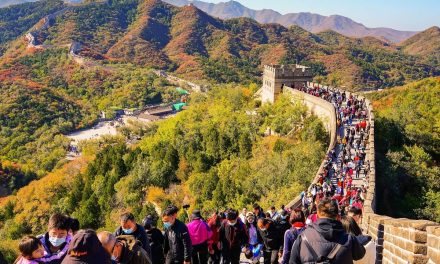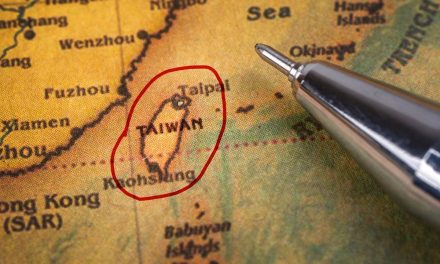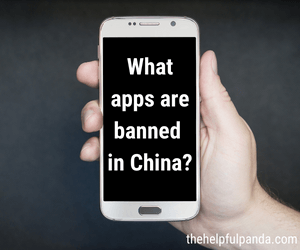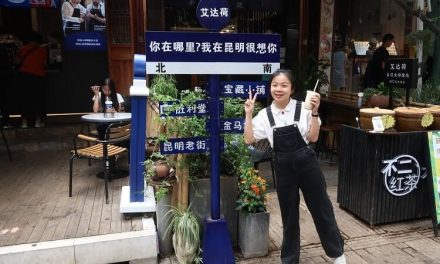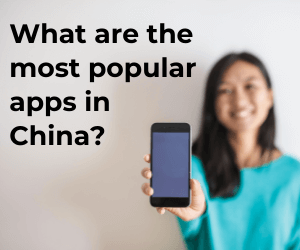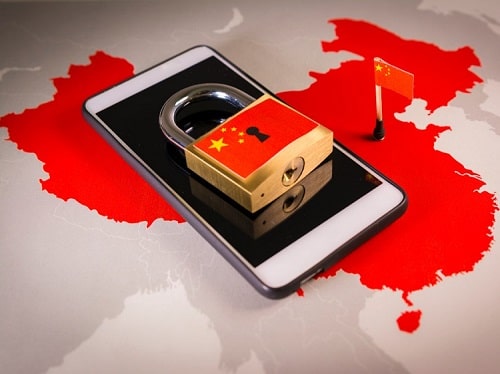Looking for some interesting information about Chinese New Year? I’ve got you covered!
I’ve celebrated this special festival countless times while living in China. And I’m constantly amazed by the things I learn about this annual celebration.
Here are 12 fun facts about Chinese New Year that I think you’ll appreciate most.
1. There are lots of names for it

No matter what you call it, Chinese New Year is about families reuniting. Image by Lesia Povkh on Shutterstock.
Chinese New Year is what most people outside China call this festival.
But it’s also known as:
- Lunar New Year
- Spring Festival
- CNY (an abbreviation for Chinese New Year)
No matter what you call it, Chinese New Year celebrates the beginning of a new year by welcoming spring according to the traditional lunar calendar.
2. Lunar New Year may not be accurate
It turns out that the term ‘Lunar New Year’ is not 100% accurate.
The Chinese lunar calendar is actually lunisolar, which means it takes into account the position of the sun in the sky as well as the moon’s various phases.
While a solar, or Gregorian calendar, includes a leap day every four years, the Chinese calendar has a leap month every three years!
This calendar is thought to date back to as early as the Zhou dynasty in 1050 BC. Over the centuries, some changes or adjustments have been made.
Other Chinese festivals like Mid-Autumn, Dragon Boat, and Qing Ming also follow the lunar, sorry, lunisolar calendar.
This means that each year, they fall on a slightly different date.
3. It’s the largest human migration

It’s the busiest time of year to travel in China. Image supplied by Mike Cairnduff.
That leads me nicely onto my next insight into Chinese New Year: Chūnyùn or 春运 in Chinese characters.
This phrase, literally meaning spring transport, refers to the annual mass migration of humans which takes place during Spring Festival.
Due to the number of consecutive days off, this might be the only chance people have to travel and spend time with family in different parts of the country, or world.
You can expect train tickets to sell out faster than a Taylor Swift concert and of course flight prices surge according to the demand.
You might have seen those pictures of US highways jam packed with holiday traffic. Believe me when I say that ain’t nothing on a Chinese railway station during Spring Festival!
While there are many great places to visit in China, locals will always advise that you avoid notable tourist destinations during holiday periods.
The idiom rén shān rén hǎi (人山人海), which translates to ‘people mountain, people sea’ or put simply ‘sea of people’, comes in very handy if you’re taking on the role of tourist during CNY.
4. It’s a long holiday
Chinese New Year is a two-week-long affair. It’s the country’s longest public holiday.
The locals are guaranteed about a week to 10 days off work, though festivities generally last longer than that and include many smaller celebrations.
For example, there are certain days when married people are supposed to visit their in-laws. I’ve included a day-by-day summary of the festival at the bottom of this page, if you want to find out more.
5. Newer cities become ghost towns
Okay, so this one may be unique to my personal experience in China, but I’m here to share and so I’ve included this insight.
Newer cities in China are generally populated by people who come from elsewhere in the country.
This means that during big holidays the majority of the city return to their hometowns for family reunions, leaving some modern cities almost completely empty.
I live in Shenzhen, which is only a little over 40 years old. I can count on one hand the amount of local friends I have whose family actually come from Shenzhen. And no, that doesn’t mean that I only have a few friends!
Most locals I know will travel to see their families in other provinces during Chinese New Year. This leaves the usually bustling city roads free from virtually any traffic.
A lot of restaurants will be closed and some supermarkets may even close for a few days.
In all honesty, it’s an eerie feeling.
6. Celebrations are global

Lion and dragon dances are popular around the world. Image by Nam Le on Pexels.
Now, let’s get back to the fun of it all!
With the Han Chinese placing top three for largest ethnic groups in the world, it should come as no surprise that Chinese New Year celebrations are not just confined to the borders of mainland China.
As I mentioned, this might be the only time people have to travel overseas. Perhaps they will visit family members who live abroad or even just explore a new corner of the world.
But thankfully these adventurous locals can usually still find a way to celebrate their culture’s most important holiday.
Cities outside of the country with significant Chinese communities or large Asian populations will often play host to parades, street parties and so much more. Think bright lights, loud noises, lots of red, lion dances, incredible food and, of course, family reunions.
I’ve experienced such lunar new year celebrations in Hong Kong, San Francisco, Reno (don’t ask), Macao and of course, here in mainland China!
If you’re interested in experiencing some traditional Chinese fun before committing to visiting for the real thing, I’d recommend visiting your nearest Chinatown.
You can ask around if they have any activities going on for Chinese New Year so you can enjoy a little slice of the fun. Chinese people love to share their culture with those who are curious to learn about it.
7. The Chinese zodiac determines your year

The dragon is one of the most auspicious zodiac creatures. Image by RDNE Stock Project on Pexels.
Similar to horoscopes in the West, the Chinese have various zodiac signs.
Each new lunar year is assigned a different animal:
- Dog
- Dragon
- Goat
- Horse
- Monkey
- Ox
- Pig
- Rabbit
- Rat
- Rooster
- Snake
- Tiger
These signs reflect the kind of year you’ll have. If it’s the birth year of your sign, you’re in for a big one!
Some other southeast Asian countries, many of which are just a short flight from the Chinese mainland, have slightly different animals in their zodiacs.
When I visited Vietnam during one Spring Festival vacation, they were celebrating Year of the Cat, meanwhile China was celebrating Year of the Rabbit.
8. People eat food with special meanings

Dumplings are a traditional food with meaning. Image supplied by Mike Cairnduff.
I’ve said it a million times, but I’ll say it again: food is my favorite thing about China!
Many holidays in the West have close connections to specific meals or dishes. Thanksgiving turkeys, Christmas roasts, and Passover feasts. Well, Chinese New Year is no exception.
Many of the foods eaten around this time have symbolic meanings. There are just too many amazing dishes to cover in detail, but I’ll quickly mention a few!
Dumplings are the perfect Chinese New Year food. Not just for traditional reasons, but also for the way in which families come together to hand-make them. Chinese dumplings are rich in nature and taste as they symbolize wealth.
A whole steamed fish is said to represent abundance. The Chinese word for fish, yú (鱼), sounds similar to the Chinese word for remainder or extra.
Tangyuan, sticky rice balls in soup, are eaten to promote the togetherness of families. They do say families stick together… I’ll leave the jokes to somebody else from now on.
Mandarin oranges and tangerines are also very popular. They’re said to bring good fortune and luck, once again due to the way they’re pronounced in Chinese.
I have a sneaky feeling that these fruits just so happen to be in season around CNY, but that takes away a little bit of the shine.
9. Red envelopes are given out

Kids love this time of year. Image by Angela Roma on Pexels.
As a kid, did you ever get a birthday card from somebody and politely pretend to read the cheesy Hallmark greeting inside while surreptitiously trying to count the amount of money landing in your lap?
The Chinese must have invented red packets just to avoid such situations.
Hóngbāo (红包) are one of many staple Chinese New Year traditions. They take the form of red envelopes filled with money. Nice crisp, clean, new bills. Cold hard cash. And the envelopes themselves can be quite exquisite!
Okay, okay, traditionally it’s the red color paper or material which is the important part, not the cash inside.
Red is a significant color in Chinese culture. It symbolizes:
- Luck
- Prosperity
- Happiness
- Power
There’s a reason why the Chinese flag is red!
Wrapping so-called lucky money in red is said to give the receiver good wishes and blessings for a peaceful year.
It’s generally children or young people who receive these cash bonuses, in return for wishing the parents or grandparents a happy new year. Grown-up children, however, may bestow red envelopes upon their parents or grandparents.
Your employer might even give you a red envelope on your last day of work before the New Year!
The basic rule of thumb is: if you earn your own money, and are married, you can give red envelopes. Otherwise, don’t worry about it.
Monetary amounts vary depending on your relationship with the person you’re giving to.
The amount should never be an odd number though. Even numbers are thought to be more auspicious and a symbol of good luck.
10. Red clothes are fashionable
It’s not just red envelopes that are favored at this time of year.
Receiving new, red clothes is particularly auspicious, and you should wear the new clothes on the first day of the celebration.
In ancient times, women would make red clothes for the family but this has been replaced by store-bought clothes for most people nowadays.
Buying red clothes for yourself is perfectly acceptable (and encouraged) if you’re looking for a fresh start to the year ahead.
Whatever you do, don’t wear damaged clothes during Chinese New Year, or you could have a year filled with bad luck!
11. People avoid things that bring bad luck
Speaking of luck, eating porridge for breakfast on New Year’s Day is a no-no.
It’s traditionally viewed to be food of the poor, so does not attract prosperity for the upcoming year.
During the first two days of the New Year you shouldn’t bathe, wash clothes or wash your hair. This is to respect the Water God to whom these two days honor. Some think it could also wash away your fortune.
Sweeping and taking out the trash is said to also remove your luck. You’re only supposed to do so after the fifth day of Lunar New Year. I can get behind less housework.
Recently, I found out that you shouldn’t rush somebody to get out of bed on the first day of the New Year. This could lead to that person being rushed and pressured for the remainder of the year. Another tradition I think I really love.
Likewise, wait until people are up and at ‘em before expressing New Year wishes. If you do so while they’re still in bed, you might cause them to be sick and bedbound for the entire year!
But don’t even think about taking an afternoon nap on Chinese New Year. This will encourage laziness within yourself.
With so many rules, it can be difficult to make sure you’re celebrating properly. Thankfully some of these traditions are not too strictly followed.
12. It ends with lanterns

Red lanterns mark the end of the festival. Image by Drazen Zigic on Shutterstock.
Lantern Festival officially marks the end of the Chinese New Year.
I really love Lantern Festival! I always go for black sesame tangyuan and find it really lovely making wishes for the year ahead alongside my friends.
Traditionally, locals would make red lanterns and release them into the sky. Nowadays, high-tech drone displays seem to be much more popular (and sustainable).
And if you’ve got children, making paper lanterns is a fun and easy Chinese culture activity for kids.
Remember!
If you’re travelling to China for Spring Festival, you’ll need to download a virtual private network (VPN) if you want to keep your Instagram followers up to date with your adventures.
And it’s not just Insta. It’s Google, Facebook, YouTube, WhatsApp, news media – basically every major foreign site.
See this quick VPN review for the VPNs that work in China from expat experience (the cheap and nasty ones don’t work).
Just remember to do this before you arrive, otherwise you’ll be stuck!
At the end of the year…
So these are just a few of the interesting facts I’ve learned about Lunar New Year during my time in China. Is there anything you’d add to this list?
Ultimately, this is a time for family reunion, seeing the color red everywhere, saying farewell to the past year, welcoming the end of the coldest days and celebrating the beginning of spring.
If you want to learn more about China’s biggest annual celebration, then check out this this helpful guide. Or, why not do one better, come and experience things for yourself!
I promise you won’t regret it.
I hope you enjoyed my fun facts about Chinese New Year. Next, level up your knowledge with my fun facts about China. From the tallest buildings to the fastest trains, I think you’ll love it.
Main image credit: Angela Roma on Pexels.
Chinese New Year traditions day-by-day
Here’s what the locals have traditionally done each day over the holiday.
Day 0 – Lunar New Year’s Eve
Fairly self-explanatory but this date also plays host to the reunion dinner feast. Chinese families across the globe will come together for their Chinese New Year’s Eve dinner, the first step in saying goodbye to an old year.
Day 1 – Spring Festival
It’s the first day of the year, New Year’s Day! Celebrate by visiting neighbors and setting off loud firecrackers all day long.
Day 2 – To the in-law’s
Traditionally married daughters will take their husband and children to visit her parents at their home.
Day 3 – Day of the Rat
In Chinese folklore, this is the day rats get married. People might share their harvests with the rats, so to speak, by leaving out some crackers for them to enjoy during their nuptials.
Day 4 – Day of the Sheep
On the fourth day, Nuwa created sheep. Nuwa is said to have created the world in Chinese mythology. Meat, wine and fruit are presented as offerings to the God of Wealth today as well.
Day 5 – Break Five
Shops and restaurants start to reopen, and normality begins to return. Dumplings are traditionally eaten for five days in a row. While this isn’t strictly adhered to, most families will have dumplings at least once during Spring Festival.
Day 6 – Day of the Horse
Generally, people will return to work as normal now.
Day 7 – Day of the Human
Isn’t this every day? No, of course this was the day Nuwa created humans! If the weather is nice on this day, it should be a good year ahead.
Day 8 – Day of the Millet
Agriculture has always played a huge role in Chinese culture so today is a birthday celebration of millet grain, according to legends at least.
Day 9 – Providence Health
Another birthday! That of the Jade Emperor, the ruler of heaven.
Day 10 – Stone Festival
It’s now the 10th day of the year. In Chinese, 10 and stone sound the same. So today is the birthday of rock. Not to be confused with The Rock. His birthday is in May.
Day 11 – Son-in-Law Day
Fathers invite their son-in-law over for dinner today. Not much else to it.
Day 12 – Preparations for Lantern Festival
There’s a Chinese rhyme about making noise, building light sheds, lighting lanterns and a full moon from the 11th to 16th days. It doesn’t quite have the same ring in English.
Day 13 – Lantern Festival
Riddles are solved, wishes are made and sticky rice balls are eaten. In the south, these rice balls are called tangyuan, and in the north yuanxiao. There are some very slight differences between the two. Most notably, the fillings.
And that’s a wrap. Let me know below if you have any questions.


